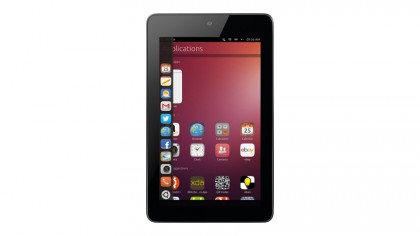Next-gen mobile OSes: what's in store?
A new frontier of Linux-based mobile operating systems
Everyone uses their tablet differently, but for us, access to cloud-based files and calendar are important. We've already switched from Google to OwnCloud for these, and we could access them through a browser. However, we found aCal and OwnCloud on F-Droid that enabled us to do these things.
OSMAnd stepped in as mapping software, and offers offline map browsing that Google has removed from its own product. The stock email and music apps worked fine, and we were pretty much set up for all our productive uses. The less productive uses of our tablet, though, looked a bit bleak. There are some games on F-Droid, though the range is far from overwhelming.
In installing Firefox, we also got access to the Firefox Marketplace where you can install apps, including games. This opens up more options, and hopefully, as Firefox OS becomes more popular, more and more apps will appear in the marketplace.
Unlike F-Droid, though, not everything in here is open source. At this point, we allowed ourselves to bend the rule. You can view this as pragmatism or weakness depending on your point of view. Over the years, we've purchased many of our favourite Android games through the Humble Bundle, and these can be installed on CyanogenMod in exactly the same way as Android.
While they're not open source, they are DRM-free, and in purchasing them, we supported the EFF, so that's good enough for us. At this point, our freedom-respecting tablet was fully set up, and every bit as useful as it had been under Google's Android.
Ubuntu Touch
Bringing a controversial desktop to phones.

Since its inception, people have been saying that Unity is designed for touchscreens, so it hardly came as a surprise when Canonical announced that they were launching a touch-screen specific version of Android. Of course, not everyone was expecting a phone-specific version though.
Get daily insight, inspiration and deals in your inbox
Sign up for breaking news, reviews, opinion, top tech deals, and more.
The Ubuntu Edge indiegogo campaign may have come and failed, but Canonical is still hoping to launch a phone in the first quarter of next year, and has an impressive array of partners on board to help them. On first boot, you'll either be relieved or disappointed to see that the tablet doesn't have the same Unity desktop that Ubuntu is famous (or infamous) for.
The Touch user interface, however, obviously takes it's inspiration from the desktop environment. At first boot, it also quickly becomes apparent that this is an early developer release. There are plenty of foibles on show, unimplemented features and other annoyances.
The power consumption, for example, is so bad that the Nexus 7 looses charge while still plugged into the mains and under moderate use. This will quickly get annoying if you use your tablet away from power sources. Of course, it does keep your hands toasty warm while you use it.
To give you an example of the current state of development, we tried to play our music on it. The first problem lay in getting the music onto the tablet. As yet, Ubuntu Touch doesn't support any USB data protocol, so we couldn't plug it in and transfer things across from the computer. Next, we tried to download them from our OwnCloud backup server, but the JavaScript in Owncloud crashed the browser. In the end, we were able to do it by using the Android development tools to open a shell on the tablet (adb shell), and install the openssh-server package, then SFTP our data across (the username/password is phablet/phablet).
With this achieved, we then found that the music player couldn't actually play the MP3 files. With all that said, there's no point in us complaining that an early release isn't complete yet. Of course it isn't. Instead, we will look at what we can glean about the OS from it.